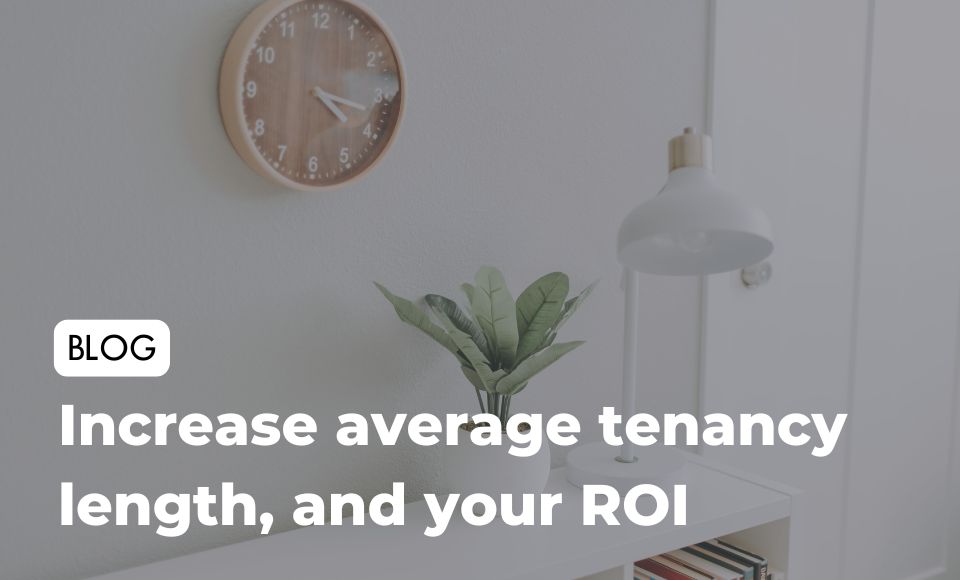Increase average tenancy lengths and you solve one of the biggest landlord problems – how to avoid voids!
An empty property costs money. Filling a property with the right tenants takes time AND costs money. So, learn to minimise void periods and you’ll thank yourself. Here’s how.
Average tenancy lengths
According to Government statics, the average tenancy length in England has increased to 4.4 years. In cities, the average is just 20 months! At Homesure Property, our average tenancy length is 4.1 years, despite the fact that we’re based in the city of Liverpool. That’s not an accident. And it’s not good luck. It’s good management.
@homesureproperty When you’re a landlord, you’re in a service industry, so tenant satisfaction has to be your number one priority. You’ll also need to keep up with admin, legislation and financial recording. AND effective marketing is a must, if you want to attract the best tenants. There are a lot of plates to spin when you own property but you don’t have to keep them all in the air yourself! That’s where we come in. At Homesure, we support hundreds of landlords and property investors to get the best return on their investment for the long term, by providing great quality homes and a property management service you can rely on. You can move your property management to Homesure in one easy step with Homesure Switch. Contact us today to find out more. #propertymanagement #propertymanagers #lettingagent #propertyinvestor #landlordproblems #landlordlife ♬ original sound – Homesure Property
We have a thing or two we can tell you about how to increase average tenancy lengths but first, let’s look at the financial implications of shorter tenancies versus longer.
Why minimise tenant turnover? The figures
Let’s compare a property that has two tenancies in four years, to one with just one tenancy in four years.
2x tenancies at £750pcm (market rent)
If we assume there’s a one-month void period in-between, that’s 47 months’ occupation.
Total rental income: £35,250
Minus the following fees:
Let fee: £650
Clean: £150
Minor works/redecoration: £1,500
Void utilities: £250
Net rental income: £32,700
Now let’s look at the comparison.
1x tenancy at £700pcm (lower-than-market rent)
This landlord decided to charge a bit less than full market value but, by keeping the same tenant for full 48 months, they made 48 x £700pcm, and they didn’t incur any of the void-period fees.
Net rental income: £33,600
Opting for a slightly lower rent led to making more money, for less effort! I know which of those options I’d prefer!
Plus, this is just an example. When a tenant leaves, there’s no guarantee you’ll complete repairs and be ready for a new tenant within a month (unless you hire a property management company to do it for you). For every month that property stands empty, you knock more off the net income figure.
It pays to increase average tenancy length
Don’t just cross your fingers and hope that your nice tenants stay put (assuming you’ve found them in the first place). Here are some actions you can take to reduce the risk of void periods AND foster a good working relationship with your tenants.
Handle repairs and maintenance with speed and professionalism

My philosophy with repairs, is that speed is more important than cost. Why? Because the cost matters to you (the landlord) but the only thing that matters to your tenant is the inconvenience. Act slowly, or fail to solve the problem fully, and it will be remembered. Tenants usually vote with their feet and leave if they see a better option elsewhere. Show them how reliable you are, and you make better options far less likely.
Don’t milk the rent
You’re in a competitive business. The term ‘housing shortage’ gets used a lot in the press but there’s no shortage of housing in the North West. And you’re not just competing with other landlords – you’re also competing with the prospect of home ownership. There is a tipping point, where paying rent becomes less attractive than buying a house. Every time you put your rent up, you prompt your tenant to consider their position.
Incremental rent increases are necessary but you don’t have charge the maximum market rent to stay profitable. The above example proves that. It’s a good idea to reward loyalty by not bumping your rent all the way up. Over the long-term, you are the one that will reap the rewards of that loyalty.
Choose the right tenants
Tenant profiles exist for a reason; landlords and agents are match-makers! It’s important to know the type of person who matches your property. What age bracket do they fall into? Are you looking for a family of four, or a single young professional? Where do they work?
Answer these questions honestly, then match the right tenants with the right properties. If they’re not content in their home, they can’t afford to live there, or the commute to work/school is inconvenient, how long do you think they’ll stay?
If you want a low turnover of tenancies, don’t put large families into little houses to get a bit more rent. Living in cramped conditions, or facing any of the other little annoyances that go with living somewhere that doesn’t suit you, will cause them to leave. That will lead to you facing the dreaded void periods more often.
Don’t cut corners
It might seem possible to find and manage a tenant yourself but – particularly if you’re a new landlord – don’t underestimate the task. Hiring a reputable letting agent can save time and money in the long-term (sometimes, even in the short-term) by making sure you find the right tenants and keep them comfortable. Professional support will also ensure you’re legally compliant from day one – no simple task now there’s so much legislation governing landlords.
If you cut corners up front, by doing everything yourself to save money, it’s likely to be false economy in the longer-term. Start as you mean to go on – providing a top-quality, professional service to your tenants – and you’ll be rewarded by a profitable long-term investment.
Visit our lettings page, for more information about the service we provide to landlords like you.
Share this article on social media:






